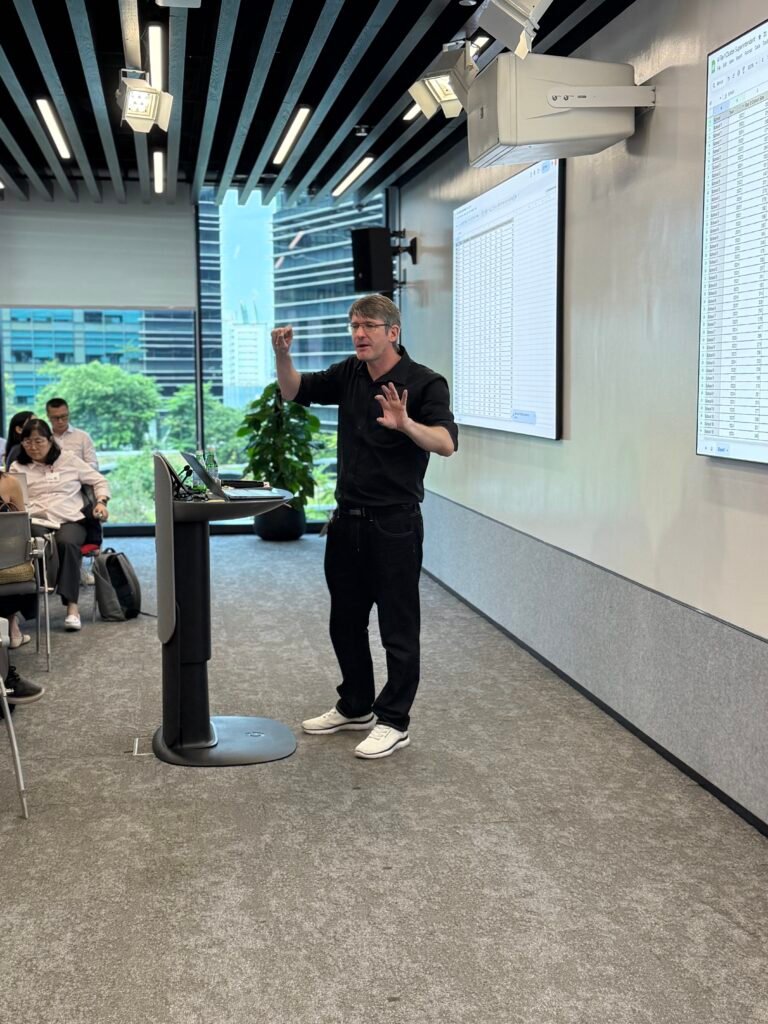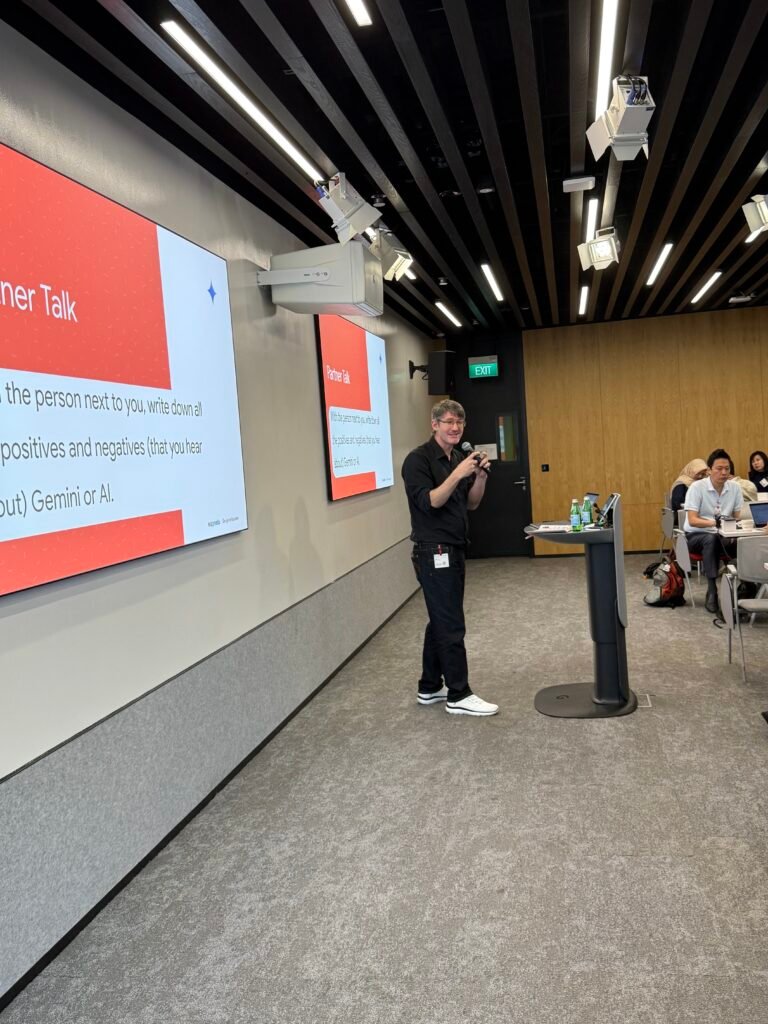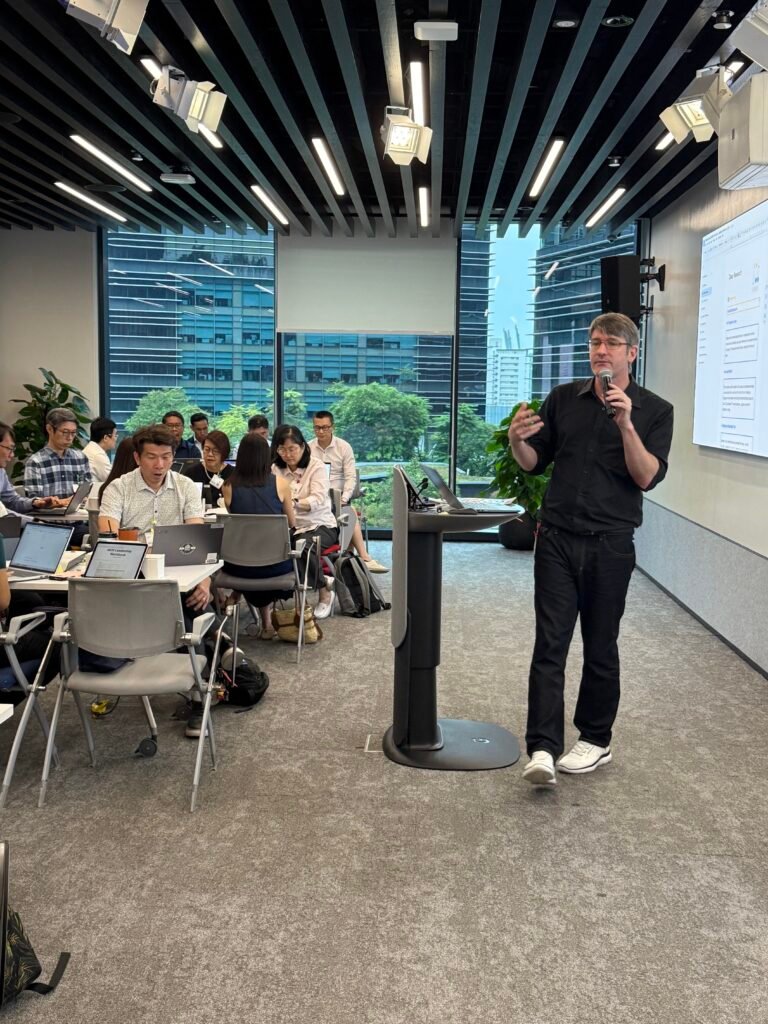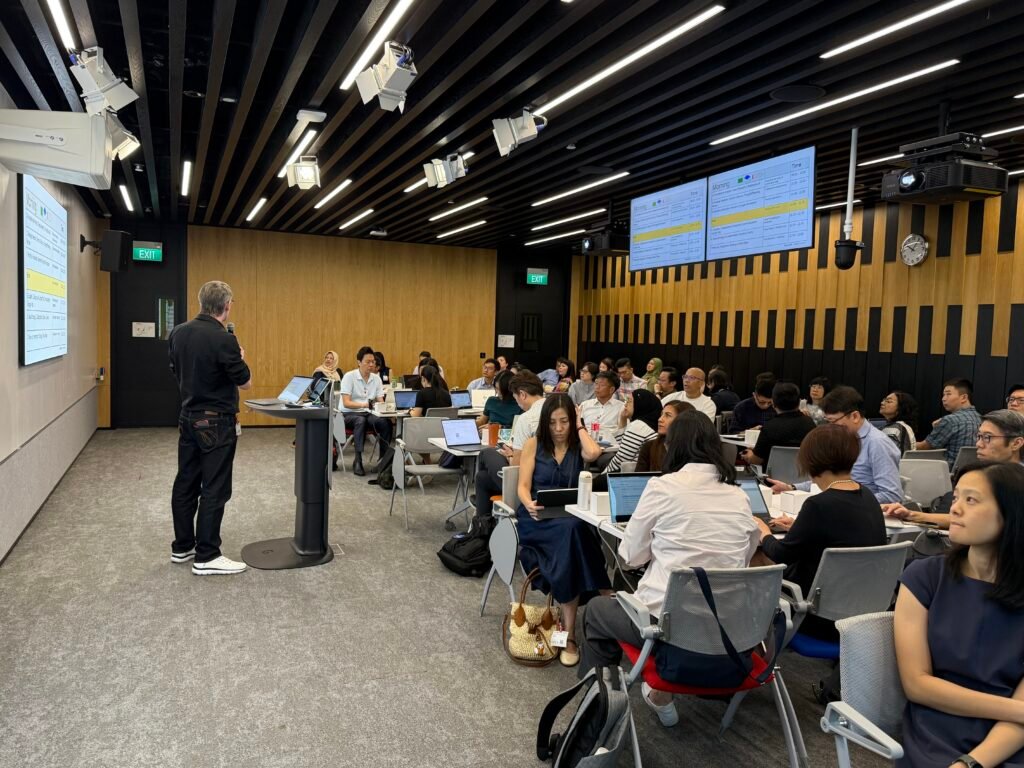Anyone in education will know about the words; Professional Development. And sometimes this takes the form of online courses, INSET days with colleagues, invited Speakers, or Workshops! And then there are moments in education when something is technically a workshop but it feels less like a formal workshop and more like a genuine planting of potential. A day when you can sense the early roots of change taking hold. Last week in Singapore I had the opportunity to lead a day of learning, hosted at Google HQ Singapore and coordinated by AppsEDU. A group of principals and vice principals from the Ministry of Education gathered for a deep dive into Gemini in Education, Google’s powerful AI platform, exploring what generative AI could mean for their schools, staff, and students.
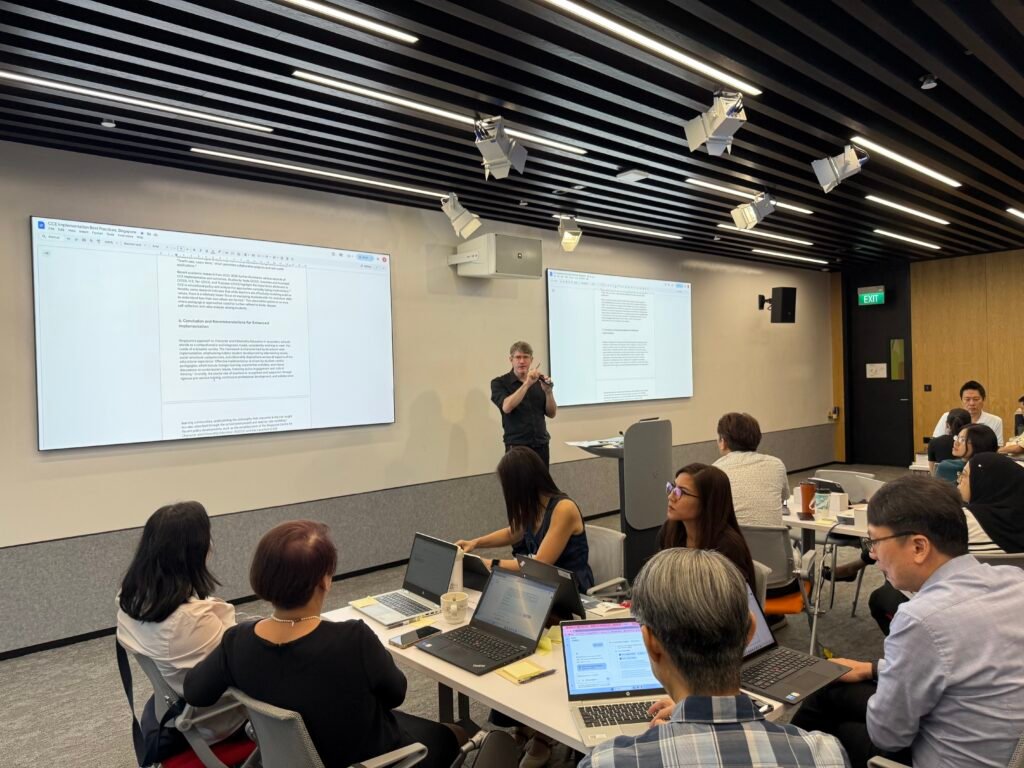
What struck me immediately was the energy in the room, the kind of energy you find when you bring together experienced leaders eager not only to learn but to experiment and innovate. It was a Monday morning, it was raining outside, and everyone arrived early or on time. That by itself is telling! Imagine a field of seeds: each seed packed with promise, shaped by years of experience, ready to sprout in unique ways when nurtured properly. That’s what these leaders represented, not just recipients of knowledge(the how) but active gardeners, ready to cultivate new growth in their schools(the why).
The turnout was impressive: 46 out of 51 invited and signed up leaders joined, representing 41 distinct schools. The group included 34 principals or vice principals which is nearly three-quarters of the participants(no funny looking charts by me here…I’ll leave that to OpenAi’s presentation) with a strong representation from secondary schools (58%), followed by primary (35%) and pre-university leaders (10%). This mix brought rich perspectives across different educational stages, all united by a shared curiosity about harnessing AI meaningfully.
From Curiosity to Confidence: The Power of Hands-On Experience
One of the clearest takeaways from the day was how much confidence can shift when leaders move from passive observers to active users. Before the session, many felt uncertain or inexperienced with tools like Gemini’s research capabilities, its integration with Workspace and Google Classroom, or the use of Canvas, and the idea of creating infographics or notebooks with AI support. Post-session feedback told a different story: many who initially rated themselves as “not confident” or “never used” became comfortable enough to describe their skill level as “good” or even “excellent.”
This shift is not surprising but is worth emphasising. It reinforces the fundamental truth in EdTech integration: exposure and practice are essential. I had planned and structured the day in such a way that every example, every feature started with the WHY. Each scenario was a real leader’s workflow. Authentic examples, relevant use cases, and the chance to try things out transform hesitation into genuine capability. And that practical mindset rather than abstract theory is what schools need to embrace if AI is going to be a tool for real change.
Leadership’s Chicken-and-Egg Challenge: Breaking the Cycle
A particularly compelling insight emerged from discussions around leadership and teacher adoption. There’s a classic chicken-and-egg dilemma: if leaders don’t provide access to new tools, teachers won’t engage or see their value; yet if teachers aren’t given space to experiment, leaders don’t witness enough benefit to justify investment. This cyclical hesitation is common in education but was met with a collective resolve to break free from it.
The group agreed that leaders must lead from the front, offering tools, time, and support, while encouraging teachers to take the initiative from the ground up. This dual approach fosters a culture where innovation isn’t just a top-down directive but a shared journey. It’s a reminder that meaningful change depends on trust, autonomy, and collaboration between leadership and teaching teams.
Leading with Gemini: Questions That Spark Action
The afternoon’s roundtable discussion shifted focus from teacher use to leadership practice. How can school leaders themselves harness AI to streamline their roles and model innovation for their staff? The conversation sparked many thoughtful questions that can guide any educational leader’s approach:
- How might leaders use Gemini to draft clearer, more effective communications or presentations with less time and effort?
- What ethical considerations should be kept in mind when applying AI to administrative tasks like student reports or disciplinary records?
- In what ways can leaders use AI to nurture a culture of experimentation and innovation among their teams?
- What kinds of professional development and support will leaders need to confidently champion AI use in their schools?
- How can Gemini help leaders stay updated with the latest educational research, policy changes, and data trends to inform decision-making?
- How might AI-driven data analysis reveal patterns in school performance and guide targeted interventions?
- Can personalized professional development plans for teachers be enhanced through AI insights?
These questions are not theoretical, they offer practical, actionable avenues for leadership to engage meaningfully with AI, beyond simply ‘rolling it out’ to staff.
Interestingly the question that got the most engagement and reflection was; What specific strategies, beyond just offering training, could you use to truly change their mind and get them involved in using tech?
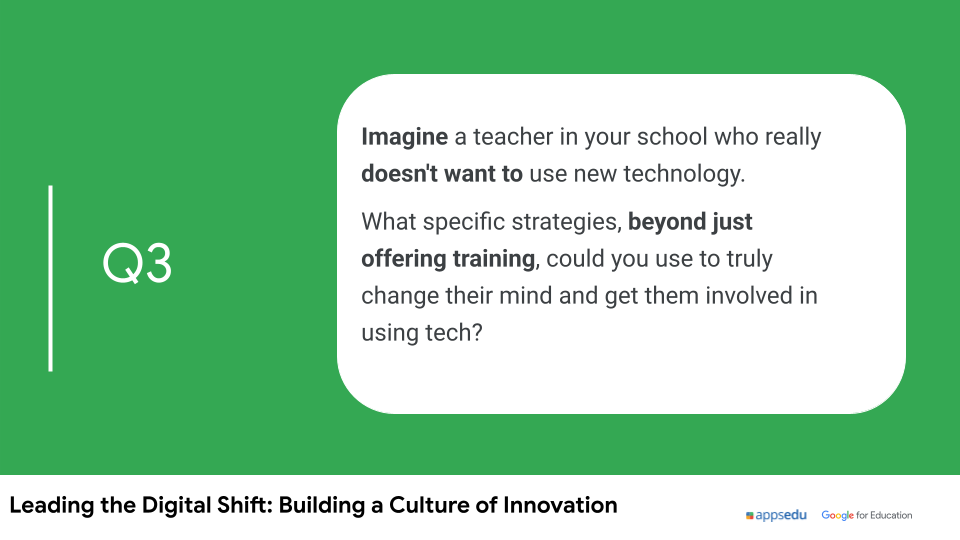
Maybe this one really struck home, or it was extra easy for leadership to visualise and pull that teacher into their mind. We all have these at our schools, and purposefully, planning for them, with them in mind is such a powerful thing we, as leaders, trainers, integrators can do!
Signs of Growth: Commitment to Change
The true measure of the day’s success came in the closing moments. An overwhelming 91% of participants expressed a commitment to exploring or adopting Google for Education AI tools within their schools over the next year. This is not just enthusiasm, it’s a sign that the seeds planted during that day are already beginning to take root.
Sustained growth in educational innovation requires ongoing nurturing: support, collaboration, and willingness to adapt. The school leaders in the MOE Singapore are clearly ready to lead this charge, planting innovative ideas and cultivating them into practices that can transform learning experiences for students across the nation.
Final Thoughts
Events like these serve as important reminders that educational technology isn’t about flashy tools or quick fixes. It’s about leadership willing to be courageous, teachers willing to experiment, and communities committed to growth. The future belongs to those who see technology as a living ecosystem, where innovation is nurtured carefully like tending a garden, rather than forced.
Thanks to the collaborative efforts of all involved, including the AppsEDU team and Google Singapore, these conversations continue, and the journey toward meaningful AI integration in education is well underway.
